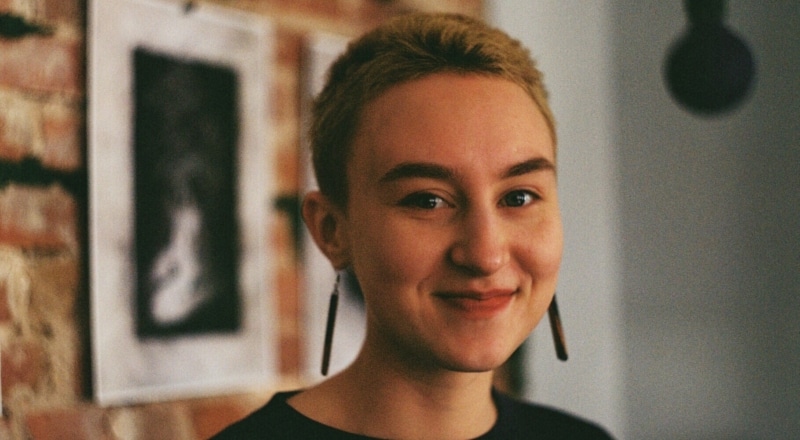Why my eating disorder was so hard to diagnose
Grainne talks about growing up and living with OSFED, a common eating disorder that is not always well understood.

TW // This article references eating disorders. Bodywhys helpline: 01 2107906 or [email protected]
Other Specified Feeding and Eating Disorder (OSFED) is the most common of all eating disorders, but it’s the least known. I have had OSFED for 16 years, yet I’m only 24 years old. One of the key points for successful eating disorder treatment is early intervention, but if people don’t know what to look out for, it’s hard to intervene.
For me, having OSFED means that I slipped under the radar for years. I didn’t fit exactly into Anorexia Nervosa, Bulimia Nervosa or Binge Eating Disorder. I was a mish-mash of every eating disorder, showing signs of all, but not enough for anyone to realise that there was an issue.
My eating disorder journey
I started to struggle with disordered behaviours and thoughts around food when I was eight years old. I couldn’t explain what was going on in my head; I just knew that I didn’t feel right, and that food changed those feelings. I think to others, I just looked like a greedy child – I was constantly around food or eating. I felt like I needed to be surrounded by food at all times. It was my form of protection, and I didn’t feel safe if it wasn’t there. I had food obsessions that if I didn’t act on, I thought the whole world would collapse. Now I know that I had anxiety and very low self-esteem, and I used food as a coping mechanism to help me get through what was going on around me.
Over the years I gained a lot of weight because of my disordered eating. Despite the fact that I was using food to help me cope, it only made my anxiety and low mood worse. By 11 or 12, I started to compensate for that weight gain with other disordered behaviours. None of those behaviours ever lasted long enough or were extreme enough to warrant a diagnosis of Anorexia Nervosa or Bulimia Nervosa, but they were still dangerous nonetheless. I had OSFED, yet nobody knew or understood it.
Focusing on my weight
I was eventually enrolled in a university-run weight loss study for overweight and obese adolescents, and I was put on a diet plan to help me lose weight. It was exactly the wrong thing to do for someone with an eating disorder, even if I was overweight. What I needed was therapy and a recovery-focused meal plan, but because nobody thought there was anything wrong with me other than my weight, it was never questioned.
I did well in that study, as far as the researchers were concerned. I lost weight, and exercised a lot. But that weight loss study caused my behaviours to get out of control, to the point that I couldn’t think about anything other than my weight, what I would be eating next, and how to get away with restricting my food. My mood became so low that I believed if I couldn’t lose a certain amount of weight in a specific time frame, my life wasn’t worth anything.
Inpatient psychiatric unit
It wasn’t possible for me to achieve those rigid goals, so I attempted to take my life.
Unfortunately nobody really knew what to do with me – with my mood or my eating – so I wasn’t given proper support, and two weeks later I attempted to take my life again.
I ended up being admitted to an inpatient psychiatric unit and was treated for depression and Bulimia Nervosa, even though the eating disorder that I needed treatment for was OSFED. However, I am very thankful for being admitted as I was very mentally unwell. I did have a lot of support on the unit by staff and other patients, and I was kept safe, but I still wish that there had been a tailored eating disorder treatment programme for people with OSFED.
Treatment for OSFED
I’ve been in and out of both psychiatric and medical hospitals multiple times since I was seventeen, and throughout that period I’ve done a lot of recovery work for my mental health, but the one thing that is still missing is correct eating disorder treatment.
I am not underweight, therefore I am not seen as critical. although I still struggle with disordered eating behaviours I am trying to stop these. Yet despite that, I have constant disordered thoughts, and have severe issues with self-esteem and the anxiety that goes hand in hand with it. I’m still struggling with disordered behaviours, but I am not struggling with Anorexia Nervosa, Bulimia Nervosa or Binge Eating Disorder – I am struggling with OSFED.
I have been told by my own psychologist that there’s no set treatment for me. I’ve been told by my psychiatrist that I “just need to try to eat three meals and three snacks a day” and then I’ll be okay. This is not appropriate healthcare, and hopefully this is not what most people experience when seeking the help they need.
Lack of education
Ireland has come a long way over the past few years with awareness of eating disorders to a general degree, but as a country we are still lacking education on the correct treatment for OSFED. Everyone should have access to timely and appropriate healthcare, and that can only happen when illnesses are understood and adequate treatment plans are put in place.
For now, I am doing the best that I can with the resources that I have, and my hope is that someday I will be able to say that I have fully recovered from OSFED.
Feeling overwhelmed and want to talk to someone?
- Get anonymous support 24/7 with our text message support service
- Connect with a trained volunteer who will listen to you, and help you to move forward feeling better
- Whatsapp us now or free-text SPUNOUT to 50808 to begin.
- Find out more about our text message support service
If you are a customer of the 48 or An Post network or cannot get through using the ‘50808’ short code please text HELLO to 086 1800 280 (standard message rates may apply). Some smaller networks do not support short codes like ‘50808’.






